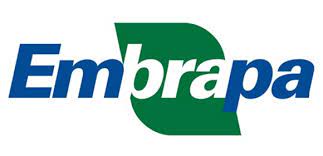PRE-ECLAMPSIA: A LITERATURE REVIEW OF RISK FACTORS AND PREVENTIVE STRATEGIES
DOI:
https://doi.org/10.47820/recima21.v5i3.4954Keywords:
Risk Factors, Pre-Eclampsia, PreventionAbstract
Introduction: Pre-eclampsia, a hypertensive condition specific to pregnancy, continues to be a leading cause of maternal and fetal morbidity and mortality worldwide. Objective: to analyze the risk factors associated with pre-eclampsia, highlighting its multifactorial complexity, and examine preventive strategies. Methodology: This is a bibliographic review, using articles present in the following databases: PubMed, Scopus and SciELO. Original articles and systematic reviews in English and Portuguese published between 2018 and 2024 were included, which addressed risk factors and prevention of pre eclampsia. After analysis, 18 articles were selected to prepare this bibliographic review. Results and Discussion: Determinants of preeclampsia include family history, genetic predisposition, duration of sexual cohabitation, maternal smoking, number of pregnancies, maternal age, use of in vitro fertilization, and maternal medical conditions such as pre-existing hypertension, diabetes, chronic kidney disease and obesity. The use of aspirin to prevent pre-eclampsia has been proposed for a long time, in addition, the use of calcium in low doses and changes in lifestyle habits, such as physical activity, are recommended. Conclusion: The identification of risk factors highlights the importance of a comprehensive assessment during prenatal care. Preventing pre-eclampsia goes beyond the medical scope, incorporating lifestyle changes and promoting healthy habits.
Downloads
References
AKBAR, Muhammad Ilham Aldika et al. INOVASIA study: a multicenter randomized clinical trial of pravastatin to prevent preeclampsia in high-risk patients. American Journal of Perinatology, 2022. DOI: https://doi.org/10.1055/a-1798-1925
BURTON, Graham J. et al. Pre-eclampsia: pathophysiology and clinical implications. BMJ, v. 366, 2019. DOI: https://doi.org/10.1136/bmj.l2381
CHAPPELL, Lucy C. et al. Pre-eclampsia. The Lancet, v. 398, n. 10297, p. 341-354, 2021. DOI: https://doi.org/10.1016/S0140-6736(20)32335-7
DAVENPORT, Margie H. et al. Prenatal exercise for the prevention of gestational diabetes mellitus and hypertensive disorders of pregnancy: a systematic review and meta-analysis. British journal of sports medicine, v. 52, n. 21, p. 1367-1375, 2018. DOI: https://doi.org/10.1136/bjsports-2018-099355
DIMITRIADIS, Evdokia et al. Pre-eclampsia. Nature Reviews Disease Primers, v. 9, n. 1, p. 8, 2023. DOI: https://doi.org/10.1038/s41572-023-00417-6
DÖBERT, Moritz et al. Pravastatin versus placebo in pregnancies at high risk of term preeclampsia. Circulation, v. 144, n. 9, p. 670-679, 2021. DOI: https://doi.org/10.1161/CIRCULATIONAHA.121.053963
HAUSPURG, Alisse; JEYABALAN, Arun. Postpartum preeclampsia or eclampsia: defining its place and management among the hypertensive disorders of pregnancy. American Journal of Obstetrics and Gynecology, v. 226, n. 2, p. S1211-S1221, 2022. DOI: https://doi.org/10.1016/j.ajog.2020.10.027
IRWINDA, Rima et al. Vitamin D supplementation higher than 2000 IU/day compared to lower dose on maternal–fetal outcome: Systematic review and meta-analysis. Women's Health, v. 18, p. 17455057221111066, 2022. DOI: https://doi.org/10.1177/17455057221111066
KINSHELLA, Mai-Lei Woo et al. Maternal nutritional risk factors for pre-eclampsia incidence: findings from a narrative scoping review. Reproductive health, v. 19, n. 1, p. 188, 2022. DOI: https://doi.org/10.1186/s12978-022-01485-9
MAGEE, Laura A. et al. The 2021 International Society for the Study of Hypertension in Pregnancy classification, diagnosis & management recommendations for international practice. Pregnancy hypertension, v. 27, p. 148-169, 2022. DOI: https://doi.org/10.1016/j.preghy.2021.09.008
MEDJEDOVIC, Edin et al. Pre-eclampsia and maternal health through the prism of low-income countries. Journal of Perinatal Medicine, v. 51, n. 2, p. 261-268, 2023. DOI: https://doi.org/10.1515/jpm-2022-0437
NINAN, Kiran et al. Prevention of pre‐eclampsia with aspirin: A systematic review of guidelines and evaluation of the quality of recommendation evidence. International Journal of Gynecology & Obstetrics, v. 161, n. 1, p. 26-39, 2023. DOI: https://doi.org/10.1002/ijgo.14471
PHIPPS, Elizabeth A. et al. Pre-eclampsia: pathogenesis, novel diagnostics and therapies. Nature Reviews Nephrology, v. 15, n. 5, p. 275-289, 2019. DOI: https://doi.org/10.1038/s41581-019-0119-6
QI, Jingqi et al. Diagnostic biomolecules and combination therapy for pre-eclampsia. Reproductive Biology and Endocrinology, v. 20, n. 1, p. 136, 2022. DOI: https://doi.org/10.1186/s12958-022-01003-3
RANA, Sarosh et al. Preeclampsia: pathophysiology, challenges, and perspectives. Circulation research, v. 124, n. 7, p. 1094-1112, 2019. DOI: https://doi.org/10.1161/CIRCRESAHA.118.313276
TARRY-ADKINS, Jane L.; OZANNE, Susan E.; AIKEN, Catherine E. Impact of metformin treatment during pregnancy on maternal outcomes: a systematic review/meta-analysis. Scientific reports, v. 11, n. 1, p. 9240, 2021. DOI: https://doi.org/10.1038/s41598-021-88650-5
TOWNSEND, Rosemary et al. Prediction of pre‐eclampsia: review of reviews. Ultrasound in Obstetrics & Gynecology, v. 54, n. 1, p. 16-27, 2019. DOI: https://doi.org/10.1002/uog.20117
WOO KINSHELLA, Mai‐Lei et al. Calcium for pre‐eclampsia prevention: a systematic review and network meta‐analysis to guide personalised antenatal care. BJOG: An International Journal of Obstetrics & Gynaecology, v. 129, n. 11, p. 1833-1843, 2022. DOI: https://doi.org/10.1111/1471-0528.17222
Downloads
Published
How to Cite
License
Copyright (c) 2024 RECIMA21 - Revista Científica Multidisciplinar - ISSN 2675-6218

This work is licensed under a Creative Commons Attribution 4.0 International License.
Os direitos autorais dos artigos/resenhas/TCCs publicados pertecem à revista RECIMA21, e seguem o padrão Creative Commons (CC BY 4.0), permitindo a cópia ou reprodução, desde que cite a fonte e respeite os direitos dos autores e contenham menção aos mesmos nos créditos. Toda e qualquer obra publicada na revista, seu conteúdo é de responsabilidade dos autores, cabendo a RECIMA21 apenas ser o veículo de divulgação, seguindo os padrões nacionais e internacionais de publicação.

 Clique para ver detalhes
Clique para ver detalhes 











